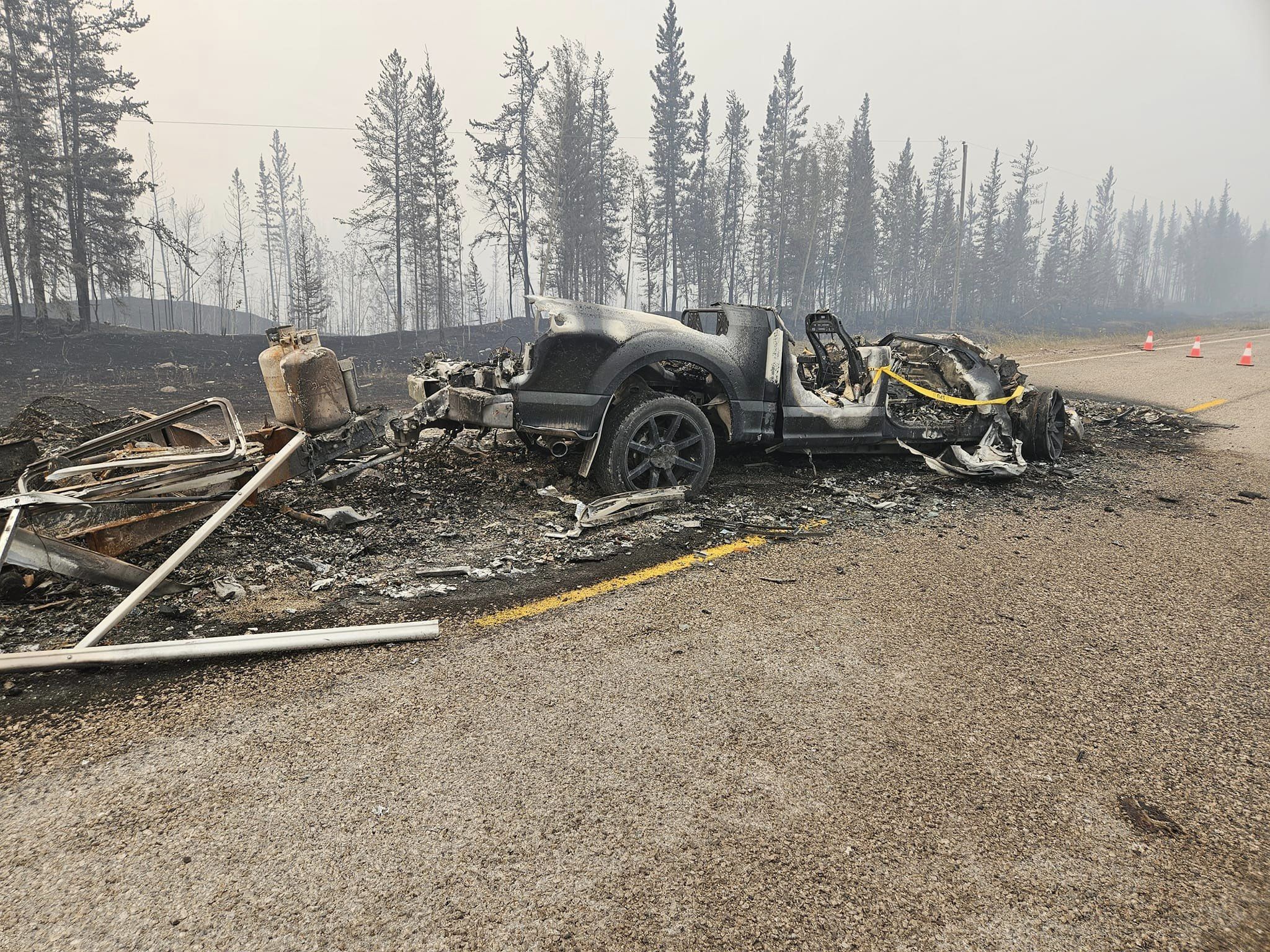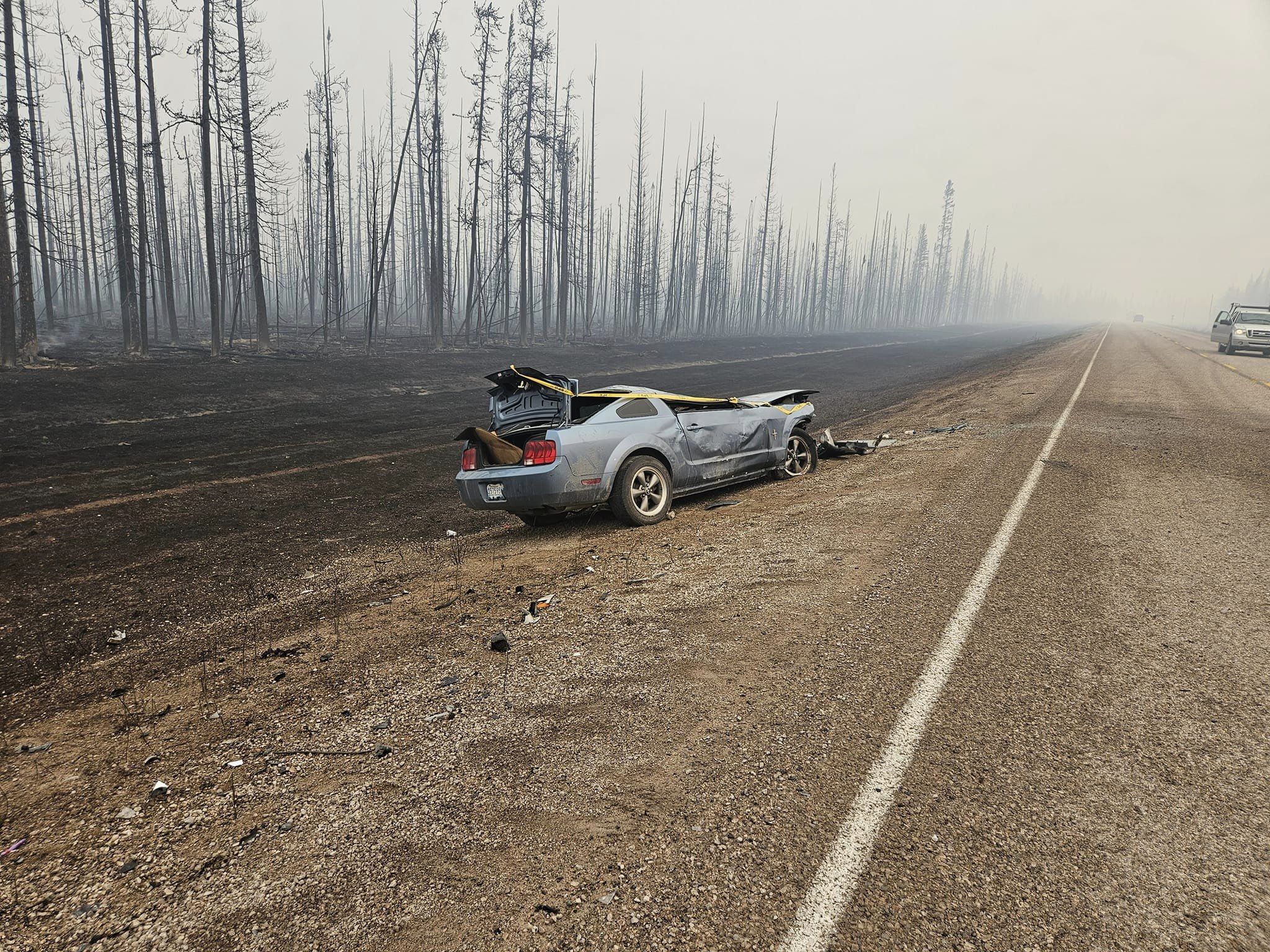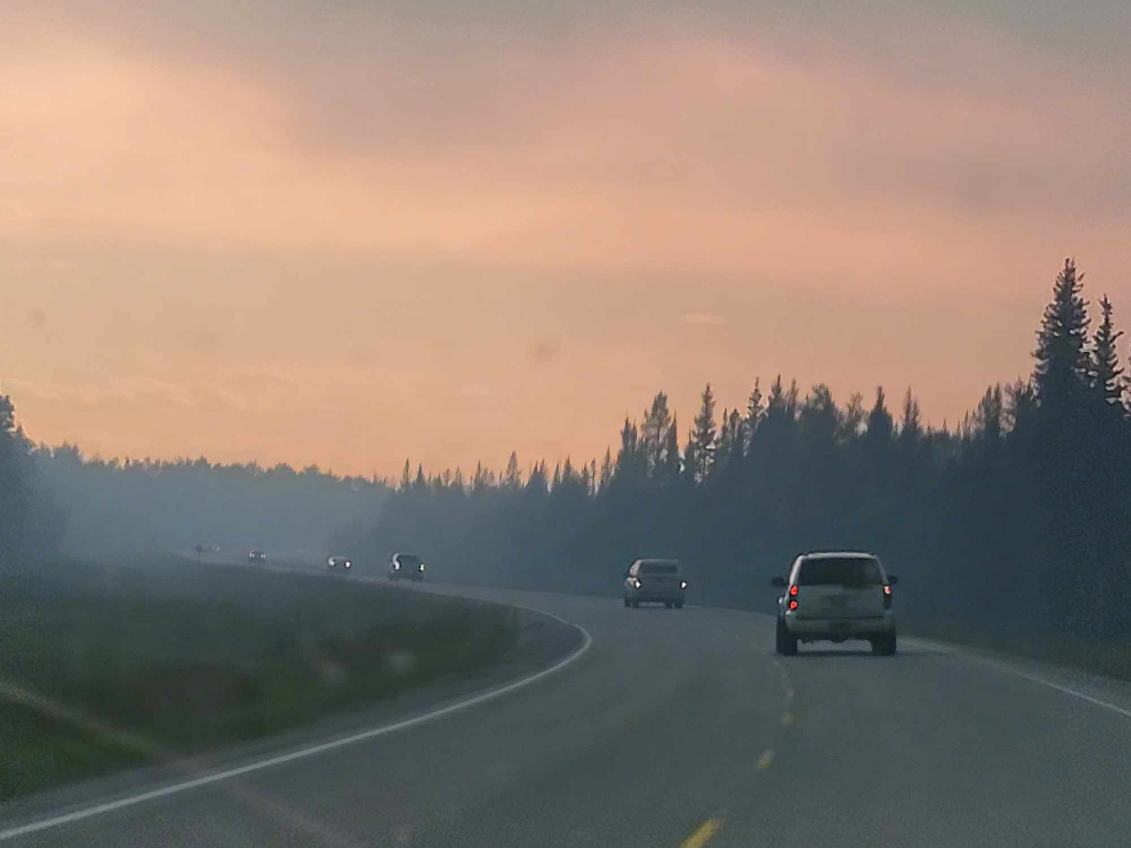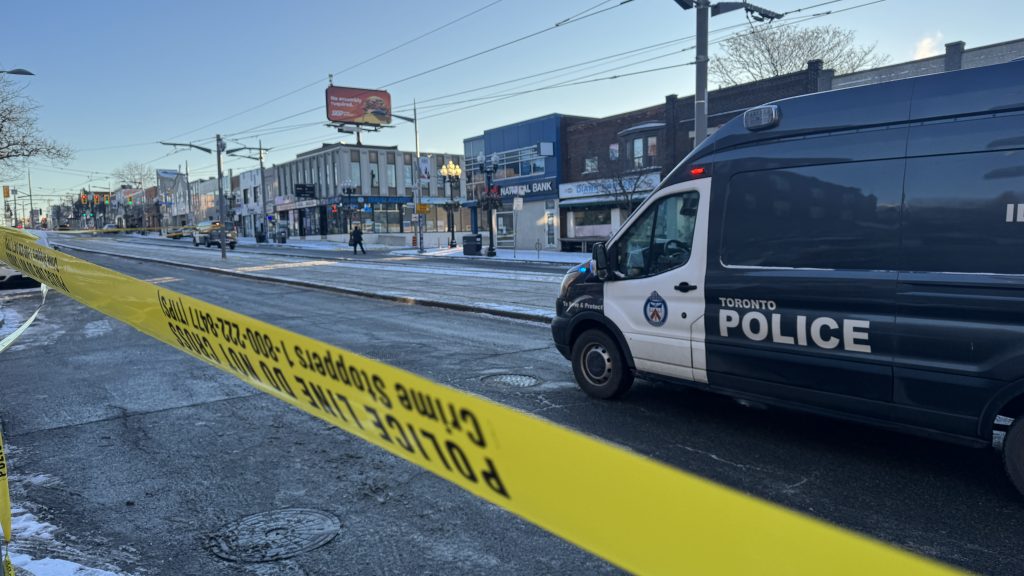Meta blocking news in Canada could impact wildfire evacuations, other emergencies
Posted August 15, 2023 4:56 pm.
Ashley Gresl was on FaceTime with her family, watching them narrowly escape an out-of-control wildfire near Hay River, in the Northwest Territories.
More than 20,000 square kilometres have burned from the 236 wildfires tearing through the northern boreal forest – an area almost four times the size of Prince Edward Island.
It’s been a scary time for all those involved.
“You see your family go into a literal pit of flames, and you don’t know if they will make it out on the other side,” recounted Gresl.
“Them having to go through that is so heartbreaking, so scary.”
Thousands of residents in communities near the Alberta and Northwest Territories border were ordered to evacuate to safety. Evacuations have been ordered for Fort Smith, Enterprise, Jean Marie River and Hay River.
Many highways have been closed by the fires and the territory is mounting what officials call the largest airlift in its history. The Canadian Forces are on the ground helping firefighters and flying evacuees out on Hercules aircraft.
“You could see flames on each side of the road, and all you could see was them driving straight to the fire,” said Gresl. “But that’s their way out, they didn’t have an option to turn around, so they had to go through it.
“They couldn’t see anything other than fire, they couldn’t touch the window because of the fire.
“There were flames in front of them, on both sides, they went into the ditch. Luckily they got out, but there were four other vehicles that didn’t get out of the ditch, and they also passed a semi fully engulfed in flames.”

Sky burning red during a wildfire evacuation in the Northwest Territories in August 2023. (Submitted by: Jorja Mulder)
For some, communication systems went dark due to fire damage to Northwestel fibre lines as well as some electrical lines. It left many without cell service or internet.
Getting wildfire information in such a situation is a complex job, especially with rapidly changing conditions. The situation involving Gresl’s family and other was one of the first wildfire evacuations in the country since Canadian news sites have been blocked on Facebook and Instagram.
“Having more information at your fingertips is so helpful. The fact that we can’t have those news sites shared is a concern,” said Jessica Davey-Quantick, the fire information officer for GNWT (Government Northwest Territories).
Concern that news is less accessible
Davey-Quantick says the GNWT page is spreading as much information as possible about the wildfires burning in the territory, but is worried about the consequences of Meta’s ban on news.
“It hasn’t impacted our communications directly yet, however we have a very active media environment in the north, and I know that’s how people share information and pass information around and now that isn’t accessible on social media,” she said.
“Having more information at your fingertips is so helpful. The fact that we can’t have those news sites shared is a concern.”
RELATED:
- What Meta’s and Google’s news blocking means for indie media, and for you
- Police using social media accounts as Meta begins blocking news for Canadians
Residents of the territorial capital Yellowknife have been told to be ready to leave. A local state of emergency has been declared, although the city is not currently considered threatened. A similar alert was issued for Inuvik at the far northwestern tip of the N.W.T.
“Many of those municipal governments, Indigenous governments simply are not able to answer the phone right now, they don’t have connectivity,” said Davey-Quantick. “We are trying to jump in and help with that, and spread that information. People looking for information, the way is on our website, or on our social media.
“We are trying to share any of the updates from the various organizations so it is all in one spot for people.”
Sarah Scott was evacuated from Fort Smith to Hay River, then evacuated a second time – from Hay River to High Level.
“When I was evacuating from Fort Smith there was one portion of the highway with sprinklers on the road, and you could see big plumes of smoke coming up from the ground, the damage was incredible,” Scott told CityNews from High Level.
“It was really mind-blowing, I didn’t expect it to be that intense. It was close to the road, you couldn’t see flames but you could literally see the sky get dark quickly, and we went from it being smoky and hard to breath and reddish, and started turning from orange to almost maroon. It was dark, it looked like it was night but it was only five o’clock.”
Public alerting system
Ana Potzkai, with the disaster and emergency management program at NAIT, says she’s monitoring what repercussions Meta’s news ban could have in Canada.
“People have gotten very reliant on getting their news sources from our social media world, so it will be interesting to see how much this impacts people’s knowledge on topics,” she said.
Potzkai feels it could possibly lead to a rise in misinformation if incorrect sources gain traction in a hectic time.
“When getting updates on wildfire information, it’s always really important to check the source of your information, making sure you’re getting it from a reputable source,” she said. “So that might be Alberta Wildfire, or town and municipal websites. They will be keeping it up to date as quickly as they can.
“These situations, they evolve so quickly, so it changes from minute to minute. Everybody wants the public to have the right information at the right time, but that can get tricky with all the layers of people involved.”

Burned-out vehicle at the side of the road during a wildfire evacuation in Northwest Territories in August 2023. (Submitted by: James Trotter)
In extreme situations, Potzkai says residents should tune in to the public alerting system above all else.
“Communication during a wildfire, it’s a multifaceted effort, so when there is information that is critical to life, it is going to go out through the public alerting system, so it goes out to everyone’s cell phone, TV, radio, every method of communication, it gets blasted out so that people are able to get that very prompt communication,” she said.
“Radio is a lot harder to knock out, so as long as you have your car running you should still have a radio.”
‘We need to know ahead of time’
Scott says her evacuation from Fort Smith happened quickly, even though the fire had been around for months.
“We’ve been aware for most of the summer, it’s been burning for quite a while, but it was on the other side of the river, the town wasn’t in immediate danger,” she said. “So you don’t really think about it, you go to work and do your thing and eventually it’s like ‘it’s really bad.’
“When you’re told you had to go you really start thinking about ‘did you pack the right stuff, do I have enough? What will I need, where will I go?’ It’s so disorienting.
“Try to have yourself a bag ready to go, so you aren’t scrambling at last minute, because conditions can change so rapidly.”

Damaged vehicle at the side of the road during a wildfire evacuation in Northwest Territories in August 2023. (Submitted by: James Trotter)
While relieved her family made it out safely, Gresl wishes officials had been more proactive and issued evacuation orders sooner.
“The world literally revolves around technology, and social media,” she said. “If there is a fire starting, we need to know ahead of time, before it leads to phones cutting out, internet cutting out, people driving through fire. I understand things go fast, and stuff happens fast, but knowing that these fires happen every single year, there needs to be something made so it’s safer for everyone in the north.
“They just push it really, really close, and they’re like ‘it’s OK, it’s OK, it’s OK.’ And one of these times it’s not going to be OK.”
—With files from The Canadian Press









